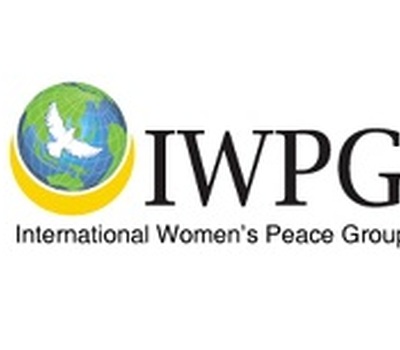
The 6th International Women Leaders’ Peace meeting was hosted online on November 16 by the International Women’s Peace Group (IWPG) Global Region 2 (Regional Director SeoYeon Lee). The event was attended by approximately 300 women leaders and members from 15 countries, including South Korea, Iraq, Lebanon, Libya, Yemen, Melbourne, Jordan, Tanzania, Ethiopia, Israel, Palestine, Kuwait, Syria, the UAE, and Saudi Arabia.
Under the theme “The Role of International Women Leaders in Ending War,” the conference was organized to explore solutions for ending war and achieving a peaceful future for humanity.
Speakers included prominent women leaders from around the world, such as Huria Al-Tamal (Minister of Women’s Affairs, Libya), Faiza Abdul Rakib Salam (Undersecretary of the Ministry of Culture, Yemen), Ghada Shreim (Political Head of the National Commission for Lebanese Women, NCLW), Pascale Esho Warda (Founder of the Hammurabi Human Rights Organization), and Koo Sun-young (Director of Peace Education, IWPG Global Region 2, South Korea).
Additionally, the event featured an Open Mic for Peace, where women from around the world shared messages of hope and solidarity, emphasizing the ongoing commitment to realizing global peace.
SeoYeon Lee, the Director of IWPG Global Region 2, remarked, “Even in this highly advanced 21st century, the world continues to face threats to our lives and homes due to wars, terrorism, environmental issues, poverty, and abnormal weather caused by human actions. Addressing these global challenges collectively and sharing the pain is crucial in upholding the value of humanity.” She also stressed, “When 4 billion women around the world unite with soft yet powerful strength, this force can become immensely impactful.”
Dr. Huria Al-Tamal, Libya’s Minister of Women’s Affairs, stated, “Peace is not simply achieved through treaties or conferences. It is realized through societal will, the building of bridges of mutual understanding and coexistence, and the embedding of human and religious values throughout society.”
Dr. Faiza Abdul Raqib Salam, Undersecretary of the Yemeni Ministry of Culture, said, “Armed conflicts are among the most critical challenges facing the world. Women, as one of the most affected groups, face compounded challenges due to gender-based violence and discrimination, which intensify during conflicts. To build a more peaceful and stable world, we must encourage women’s participation in decision-making and leadership roles at every stage of the peace process.”
Dr. Ghada Chreim, Political Head of Lebanon’s National Commission for Lebanese Women (NCLW) and Former minister of the Displaced, noted, “Wars persist across the world, from Ukraine, Sudan, and Gaza to Lebanon and Syria, leading to violence, bloodshed, and destruction. To build a balanced society where peace prevails, we must teach our children to love peace, embrace others, and emphasize equality.”
Ms. Pascale Isho Warda, Founder of the Hammurabi Human Rights Organization, emphasized, “Women play diverse roles in the complex and multifaceted peace process, and their efforts and presence must be ensured everywhere, regardless of quotas. Women’s participation in peacebuilding is essential for humanity as a whole.”
Gu Seonyeung, Director of Peace Education IWPG Global Region 2, explained, “Today, we have gathered with the aspiration of ending war. Although countless organizations and individuals have worked tirelessly for world peace over many years, the reason wars continue is due to issues with existing international law. The Declaration of Peace and Cessation of War (DPCW), composed of 10 articles and 38 clauses, aims to end all wars and establish a sustainable environment for permanent peace. We must spread the culture of peace through DPCW and IWPG’s activities so that we hear news of world peace achieved by DPCW instead of tragic war stories.”
Meanwhile, IWPG is a global women’s NGO registered with the United Nations Economic and Social Council (ECOSOC) and the Department of Global Communications (DGC), with headquarters in South Korea. It has 114 branches and members in 122 countries and approximately 730 partner organizations in 66 countries. With the vision of "Realizing Sustainable World Peace," it is actively working to spread the necessary solidarity that the world needs, promote a culture of peace, provide women’s peace education, and advocate for the support and enactment of the "Declaration of Peace and Cessation of War (DPCW)."

